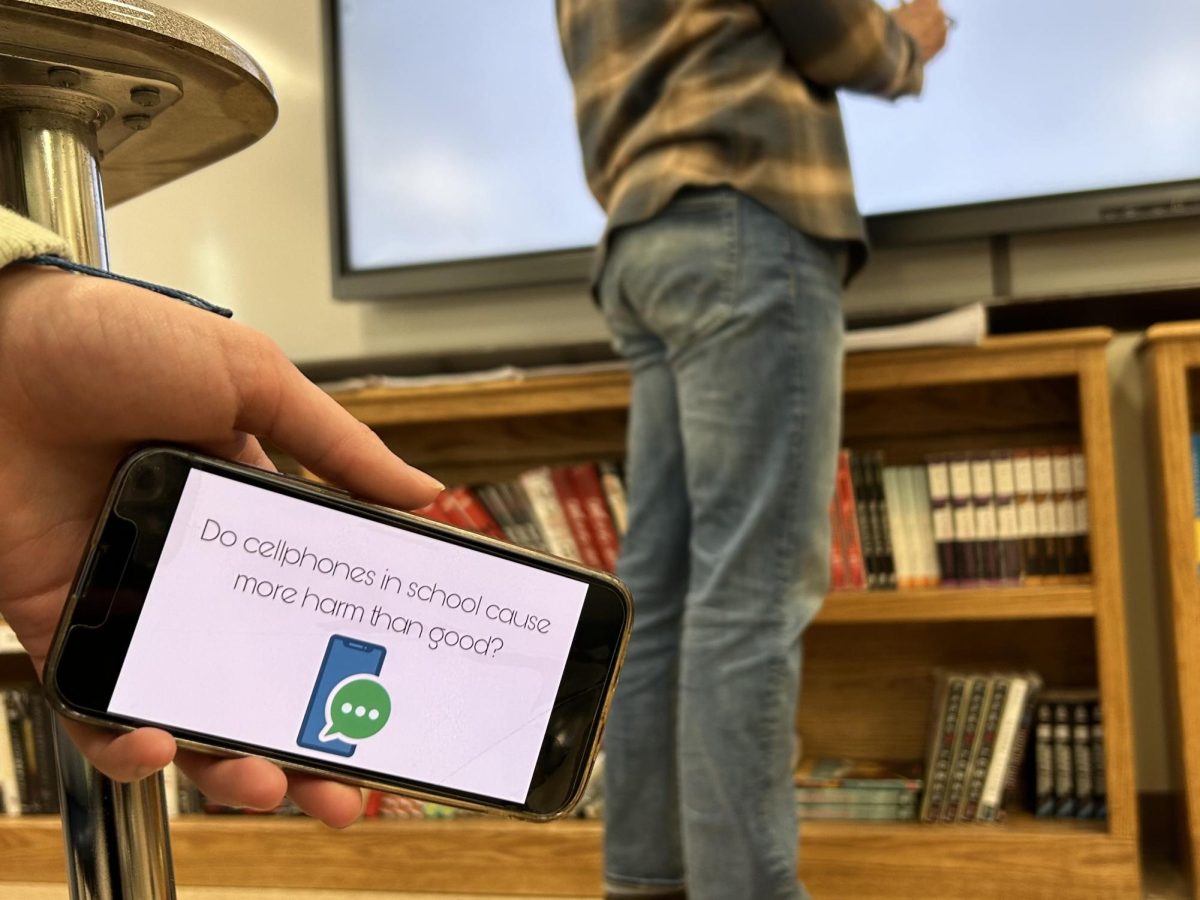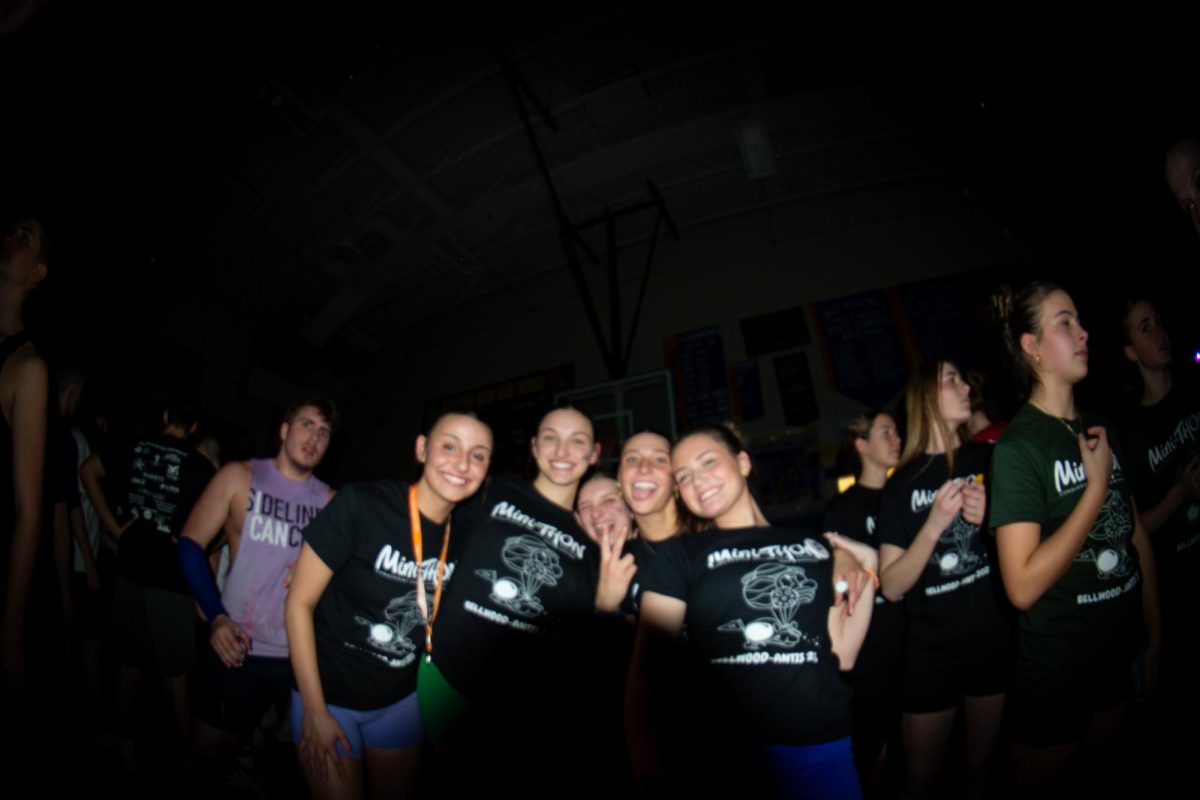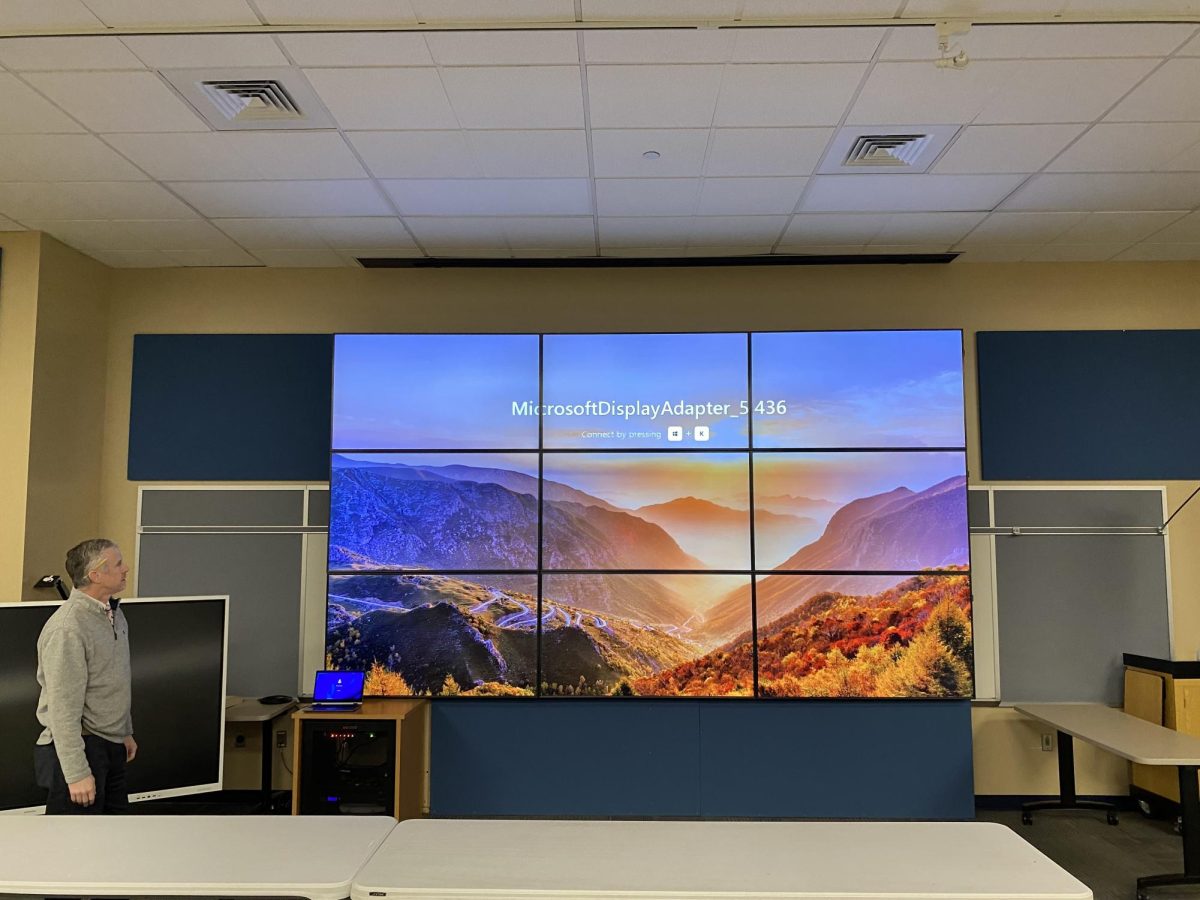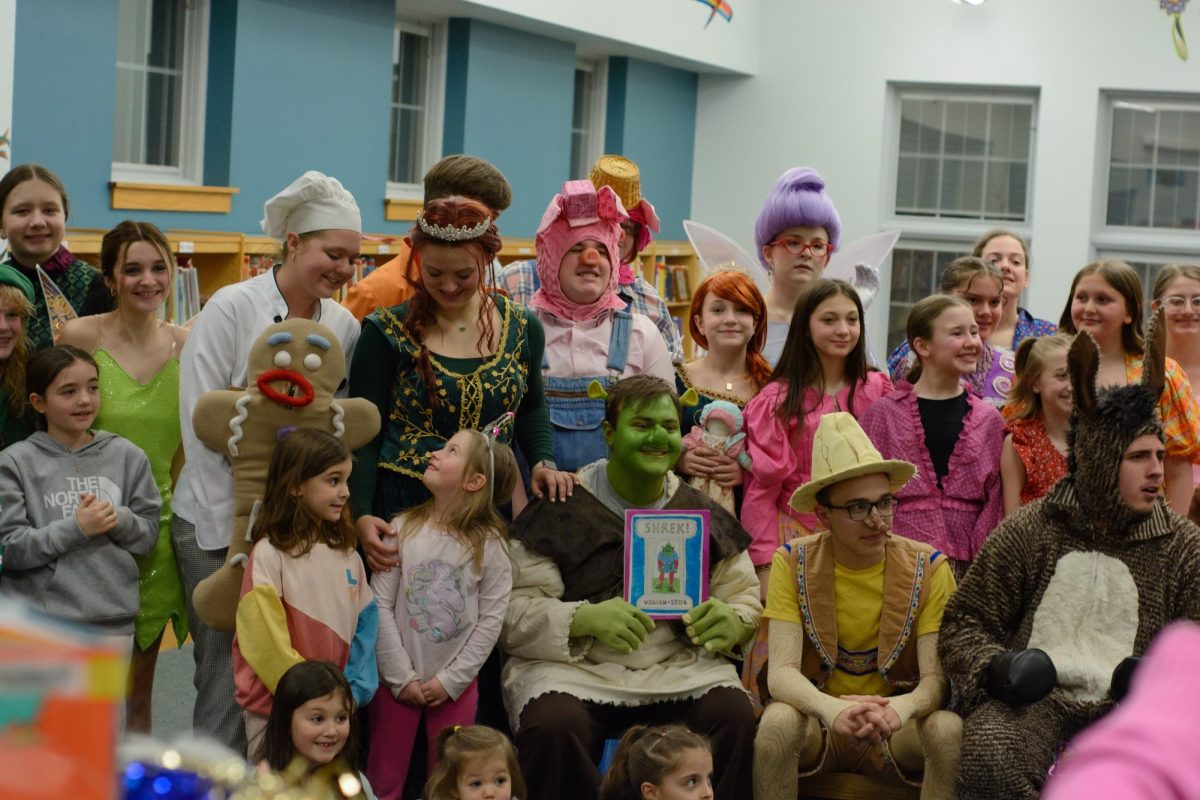In this day and age, students everywhere always have their phones on them in public, in their own homes, and most importantly in school or their place of work. According to an article done by AP News, phones are distracting students in class, and more states are pressing schools to ban them.
It has left schools to wonder: are cell phones in school really the best idea?
According to the National Center for Education Statistics, 77% of U.S. schools say they prohibit cellphones at school for non-academic or leisure use. But, that number is considered misleading due to the fact that most students do not follow those bans, or all those schools are not enforcing those bans.
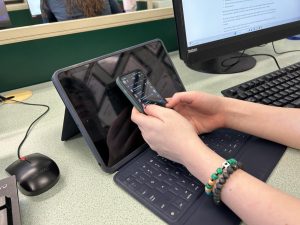
At Bellwood-Antis High School, the cellphone policy varies from classroom to classroom; however, the 2023-24 Bellwood-Antis Handbook states on page 8: “Bellwood-Antis High School staff and administration realize that the increase in student use of personal electronic devices has positive and negative consequences for the educational environment… Students may have cell phones in their possession at all times; however, devices are to be kept out of sight and are not to be used during the school day unless given specific permission by school authorities.”
Even with all these general guidelines, students are still on their electronic devices daily during classes. A study conducted last year from Common Sense Media found that 97% of kids use their phones during school hours, and that kids say the cellphone policy varies from classroom to classroom, which is true at Bellwood-Antis High School.
Many kids in BAHS can be found walking in the halls with their phones out, “sneaking” phones in class by propping them up behind their iPads, or listening to music with wireless headphones during instruction time.
Some of these distractions became addictions back in a time many remember not so fondly: the 2020 COVID-19 lockdown.
In lockdown, many students went without outside social contact for days to months on end. You could virtually access your friends through apps like Snapchat or Discord, but nobody was actually seeing anyone face to face.
So, the return back to school the following year was a rude awakening to many schools. Some students struggled to concentrate and follow directions. Some got easily frustrated and quickly gave up on school work, and many students in general did not know how to get along after the constant, instant gratification that was provided by electronics and social media over the COVID-19 lock down.
Many parents got used to being in constant contact during the COVID-19 pandemic, when kids were home doing online school. They have kept that communication going as life has otherwise returned to normal.
Because of this, many students never grew out of the instant satisfaction stage, and are always expecting a constant communication between both student and parent. Students’ patience has been severely impacted by the amount of unsolicited, undivided attention they give their smartphones. Some parents even enable that and go as far as to give their younger children electronics just so they don’t have to properly parent them.
However, on the opposite side of the spectrum, some parents are enabling the idea of kids having phones so they can track them and keep them tethered to them on a string.
According to Peter Gray, a professor of psychology at Boston College, “Today’s children are always under someone’s scrutiny. At home, the parents are watching them. At school, they’re being observed by teachers. Out of school, they’re in adult-directed activities. They have almost no privacy.”
Gray continues by adding that monitoring a child’s life is functionally equivalent to adding anxiety. He says, “When psychologists do research where they want to add an element of stress, how do they add it? They simply add an observer.”
Long before TikTok and the latest round of social media platforms, which are carefully designed to ensure obsession and dependability, students struck up conversation in the cafeteria or after class when nobody was staring at their phone all the time, or when they weren’t anxiously waiting to check the buzzing in their pocket during a video assignment in class.
For a school wide cellphone ban to work, administrators need to enforce the ban instead of leaving it for the teachers to do. The Phone-Free Schools Movement, which is an advocacy group formed by concerned mothers, says policies that allow students to keep their phones in their backpacks and lockers, much like Bellwood-Antis, are ineffective, and children do not respond well to the attempts.
“If their book-bag is on the floor next to them, it’s buzzing and distracting, and they have the temptation to want to check it,” said Kim Whitman, one of the co-founder of the Phone-Free Schools Movement.
According to Education Next, an online journalism site that looks on research done in education, those who spend an above-average amount of time with their friends in person are twenty percent less likely to say they’re unhappy than those who hang out for a below-average amount of time. American teens are less likely to date, drive a car, or have a job because of the anxiety and attachment issues caused by cellphones.
Most importantly, BA teachers have noticed the disruptions phones have caused. From pulling them out in class to snap someone back to texting on their apple watches, teachers have done and seen it all at this point.
“One thing we feared when making the change with possession was that some teachers would be more lenient than others,” stated Mr. Richard Schreier, the Bellwood-Antis High School principal. “My expectation is that the cellphones are not disrupting the learning process in classrooms, nor interrupting the instruction happening in classroom. I am not naive to believe the cellphones are not used in regular education classrooms.”
To continue, Mr. Schreier said that for the purpose of being human, he feels that no phones in school/class would improve engagement and verbal communication, which would include speaking and listening skills. He believes that our school community would be stronger if we eliminated phones after we got over the initial shock and anger of the ban.
Dr. Alice Flarend, the Bellwood-Antis High School physics and energy and environment teacher, had this to add on: “Students are distracted. I cannot compete with a device literally designed to capture and keep human attention.”
Above all, some of the students fear the policies take away their autonomy and cut off their main mode of communication with family and friends. Pushback has come from parents who fear being cutoff from their kids if their school were to ever have an emergency.
Senior Evalyna Aiken is very passionate as to why students need phones in school. She believes that since it is the student’s personal device that the teachers/school should not be able to take or ban it.
“Phones are still beneficial in school because people can contact family members in case of an emergency, and it can be used for research based projects since the school has a lot of websites blocked,” she said.
In the end, there are ways to look at phones in school both positively and negatively. On the one end, teachers believe that banning phones would help improve engagement, but students believe that if it’s their personal property and, they should be able to do what they want with it. There are pros and cons to both sides of each argument however.
“I know that eliminating cellphones is very unlikely, but eventually our society is going to have to make a decision about what we want our lives to be – relational or isolated.” said Mr. Schreier.


